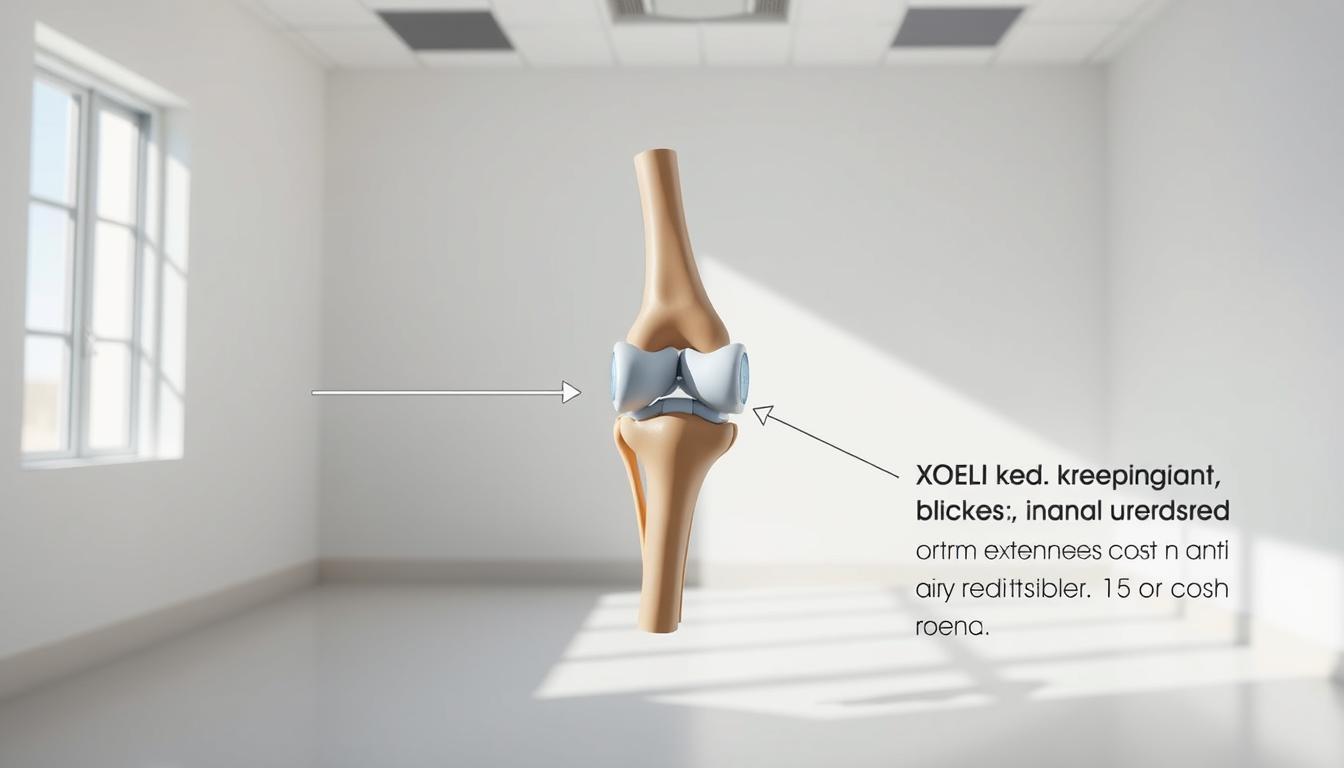Are you or a loved one considering cataract surgery and wondering if Medicare covers the procedure? You’re not alone. Many individuals in the United States face this question as they navigate the complexities of healthcare coverage.

As the population ages, cataracts become increasingly common, and the need for effective treatment grows. Understanding the relationship between Medicare and cataract surgery is crucial for making informed decisions about your eye health.
This article will explore the extent of Medicare coverage for cataract surgery, helping you understand what to expect and how to plan for the associated expenses.
Key Takeaways
- Understanding Medicare coverage for cataract surgery
- Eligibility criteria for Medicare coverage
- Out-of-pocket expenses associated with cataract surgery
- Options for managing cataract surgery costs
- Tips for navigating Medicare and cataract surgery
Understanding Cataract Surgery and Medicare Coverage
As Medicare beneficiaries consider cataract surgery, understanding the coverage and costs involved becomes essential. Cataract surgery is a common procedure that can significantly improve vision and quality of life.
What is Cataract Surgery?
Cataract surgery involves removing the cloudy lens in the eye and replacing it with an artificial lens. This procedure is typically safe and effective, offering improved vision for those affected by cataracts. The surgery is usually performed on an outpatient basis.
Basic Medicare Coverage for Cataract Surgery
Medicare covers cataract surgery, considering it a medically necessary procedure. Affordable cataract surgery with Medicare is a significant benefit for beneficiaries, as it covers the costs associated with the surgery, including the surgeon’s fees and facility costs. Understanding the specifics of this coverage can help reduce cataract surgery expenses.
Cataract Surgery Cost with Medicare: A Breakdown
For individuals considering cataract surgery, understanding Medicare’s role in covering costs is essential. Medicare provides coverage for cataract surgery, but the extent of this coverage can vary based on the type of Medicare plan you have.
Medicare Part A and B Coverage
Medicare Part A and B cover the costs associated with cataract surgery, including the surgeon’s fee, facility fees, and anesthesia. Medicare Part B specifically covers the costs related to the surgery, including the intraocular lens. Typically, Medicare covers 80% of the Medicare-approved amount for the surgery.
Medicare Advantage Plans (Part C)
Medicare Advantage Plans may offer additional benefits beyond Original Medicare, potentially covering more of the costs associated with cataract surgery. These plans may have different out-of-pocket costs and coverage rules.
Supplemental Insurance (Medigap) Impact
Supplemental Insurance, or Medigap, can help cover the out-of-pocket costs associated with cataract surgery under Medicare. Popular Medigap plans can help reduce expenses.
Popular Medigap Plans for Cataract Surgery
Some of the most popular Medigap plans that can help with cataract surgery expenses include Plans F and G, which cover deductibles, copayments, and coinsurance.
Out-of-Pocket Expenses to Expect
While Medicare covers a significant portion of cataract surgery expenses, there are still some costs that patients need to pay directly. Understanding these out-of-pocket expenses can help you prepare financially for your surgery.
Deductibles and Copayments
Medicare Part B covers cataract surgery, but patients are responsible for the Medicare Part B deductible and a copayment for the surgery. The deductible amount can vary annually, and the copayment is typically 20% of the Medicare-approved amount for the procedure.
Non-Covered Services and Upgrades
Some services related to cataract surgery, such as premium intraocular lenses or laser-assisted cataract surgery, may not be fully covered by Medicare. Patients who opt for these advanced services or upgrades will need to pay the difference out-of-pocket. It’s essential to discuss these options with your doctor and understand the associated costs.
Prescription Medications Costs
After cataract surgery, patients may need prescription medications for recovery, such as eye drops. While Medicare Part D or other insurance plans may cover some of these costs, patients may still incur out-of-pocket expenses for prescription medications. It’s crucial to review your insurance coverage and plan accordingly.
Medicare Pre-Approval and Documentation
To ensure coverage, it’s vital to comprehend Medicare’s pre-approval and documentation requirements for cataract surgery. Medicare typically covers cataract surgery when deemed medically necessary.
Required Medical Necessity Documentation
Your doctor must provide documentation that confirms the medical necessity of the surgery. This includes a comprehensive eye exam and a diagnosis of cataracts that are impacting your daily life. Accurate and detailed documentation is crucial for Medicare pre-approval.
Working with Your Doctor and Medicare
Effective communication between your doctor and Medicare is essential. Your doctor’s office should submit the necessary documentation to Medicare, and you should verify that Medicare has received and processed the information. Staying proactive can help prevent delays in the pre-approval process.
How to Minimize Your Cataract Surgery Expenses
Minimizing expenses for cataract surgery requires a strategic approach to navigating Medicare coverage. By understanding your options and making informed decisions, you can significantly reduce your out-of-pocket costs.
Working with In-Network Providers
One of the most effective ways to minimize expenses is by working with healthcare providers who are part of Medicare’s network. In-network providers have agreed to accept Medicare’s approved amount as full payment for their services, which can lead to lower costs for you. “Choosing an in-network provider can save you hundreds, if not thousands, of dollars on your cataract surgery,” says Dr. Jane Smith, a renowned ophthalmologist.
Understanding Your Medicare Benefits
It’s crucial to have a clear understanding of what your Medicare benefits cover. Review your Medicare plan to know what is included and what is not. Medicare Part B typically covers cataract surgery, including the costs associated with the intraocular lens. Familiarizing yourself with your benefits can help you avoid unexpected expenses.
Financial Assistance Programs
For those who are struggling to cover out-of-pocket expenses, there are financial assistance programs available. Organizations such as the National Eye Institute and various non-profits offer assistance to eligible individuals. Exploring these options can provide significant relief.
Special Considerations for Advanced Cataract Procedures
Cataract surgery has evolved, with advanced procedures providing more options for patients. These advancements can significantly impact the overall cataract surgery cost with Medicare. Advanced procedures, such as premium intraocular lenses and laser-assisted cataract surgery, offer enhanced benefits but may also incur additional expenses.
Premium Intraocular Lenses
Premium intraocular lenses (IOLs) are advanced lens implants designed to correct vision problems beyond what standard lenses can address, such as astigmatism or presbyopia. While these lenses can significantly improve the quality of vision, they are not always fully covered by Medicare, potentially increasing the cataract procedure cost medicare.
Laser-Assisted Cataract Surgery
Laser-assisted cataract surgery uses a femtosecond laser to perform certain steps of the cataract surgery, potentially improving accuracy and outcomes. This advanced technology may result in additional costs not covered by standard Medicare coverage, affecting the overall cataract surgery cost with Medicare.
Conclusion
Understanding the intricacies of cataract surgery costs with Medicare is crucial for making informed decisions about your eye care. Medicare reimbursement for cataract surgery can significantly reduce your out-of-pocket expenses, but it’s essential to grasp the details of your coverage.
A cataract surgery cost breakdown typically includes expenses related to the surgical procedure, intraocular lenses, and follow-up care. Medicare Part B covers a significant portion of these costs, including the surgery and standard intraocular lenses. However, additional services or premium lenses may incur extra charges.
To minimize your expenses, it’s vital to work with in-network providers and understand your Medicare benefits. Financial assistance programs may also be available to help with costs not covered by Medicare. By being informed and planning ahead, you can navigate the process with confidence and ensure you receive the necessary care without unexpected financial burdens.
FAQ
What is the average cost of cataract surgery with Medicare?
The average cost of cataract surgery with Medicare can vary, but Medicare typically covers about 80% of the Medicare-approved amount for cataract surgery. The remaining 20% is usually covered by supplemental insurance or paid out-of-pocket.
Does Medicare cover the cost of premium intraocular lenses?
Medicare covers the cost of standard intraocular lenses, but premium lenses, such as multifocal or toric lenses, may incur additional out-of-pocket expenses. The extra cost is typically not covered by Medicare.
How much do I need to pay out-of-pocket for cataract surgery with Medicare?
Out-of-pocket expenses for cataract surgery with Medicare can include deductibles, copayments, and costs for non-covered services or upgrades. The amount varies depending on the specific Medicare plan and supplemental insurance coverage.
Are there any financial assistance programs available to help with cataract surgery expenses?
Yes, there are financial assistance programs available to help with cataract surgery expenses, such as Medicaid, Veterans Administration benefits, and non-profit organizations that provide financial aid for eye care.
Does Medicare cover laser-assisted cataract surgery?
Medicare covers conventional cataract surgery, but laser-assisted cataract surgery may incur additional costs that are not covered by Medicare. Patients may need to pay out-of-pocket for the extra expenses associated with laser-assisted cataract surgery.
How can I minimize my out-of-pocket expenses for cataract surgery with Medicare?
To minimize out-of-pocket expenses, work with in-network providers, understand your Medicare benefits, and explore financial assistance programs. Additionally, consider using supplemental insurance (Medigap) to help cover copayments and deductibles.
What is the reimbursement process for cataract surgery with Medicare?
Medicare reimburses healthcare providers for cataract surgery services based on the Medicare-approved amount. Patients may need to pay upfront and then submit a claim for reimbursement, or the provider may bill Medicare directly.
Can I use Medicare Advantage Plans for cataract surgery?
Yes, Medicare Advantage Plans (Part C) can be used for cataract surgery. These plans may offer additional benefits and different cost structures compared to traditional Medicare, so it’s essential to review the plan’s coverage and costs.





One thought on “Cataract Surgery with Medicare: Is It Fully Covered?”